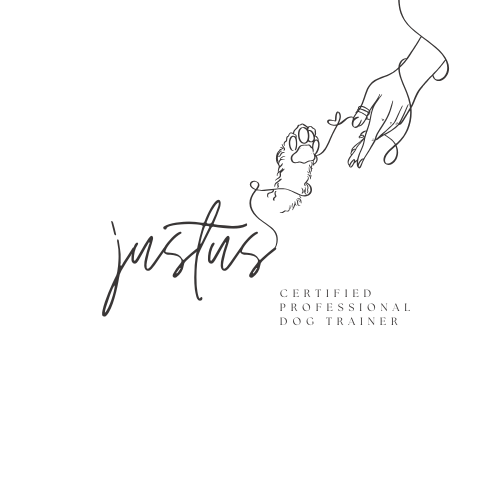How to Choose a Rescue Dog
In the U.S., I think most people should adopt their dogs.
For the average pet dog guardian — someone looking for a family companion, a walking buddy, a dog to share the couch with — a rescue is often an excellent choice. Not because it’s “morally better,” but because it’s usually a better fit.
And I say that as someone preparing to bring home a purposefully bred puppy — a decision I’ve spent years preparing for, with training goals, a support system, and a deep understanding of what I’m taking on.
The problem isn’t rescue vs. breeder.
The problem is that we oversimplify both paths, and in doing so, we set dogs and people up to fail.
We treat rescue like a moral shortcut:
“Save them all.”
“They just need love.”
“They’ll be perfect once they feel safe.”
We treat breeders like a convenience shortcut:
“Get exactly what you want.”
“Start with a blank slate.”
“A well-bred puppy won’t have problems.”
Neither narrative tells the truth.
And neither prepares people for the reality of bringing a dog into their life.
Why I Think Most People Should Adopt
Most people don’t need a blank slate.
They don’t need an intense puppy, or a dog bred for work or sport.
They need a dog who’s:
House trained
Crate comfortable
Capable of being alone for a few hours
Past the teething, screaming, middle-of-the-night bathroom break stage
They need a dog with some foundation. One who’s already shown how they handle stress, strangers, novelty, and routine. One who’s a little more known.
And that’s exactly what thoughtful rescue — when done well — can offer.
It’s not about being noble. It’s about being realistic.
And responsible.
The Trouble With Puppies
Here’s what I say often, and without hesitation:
Puppies are the worst form of dog.
They bite.
They scream.
They don’t sleep.
They don’t know anything.
They require constant supervision, consistent reinforcement, and thoughtful exposure to every part of your world.
They’re beautiful, and wow are they cute (though I think seniors do it better), but they’re demanding. And most people have no idea what they’re getting into until they’re already overwhelmed.
That’s not a failure of love. It’s a failure of preparation.
Rescue dogs, especially those in foster care, often come with information. Observations. History. Patterns. They give you more data to make a good match — and more time to adjust without the intensity of puppyhood layered on top.
So How Do You Choose the Right Rescue Dog?
Start With the Life You Actually Live
Not the one you hope to live.
Not the one you imagine when you're well-rested and inspired.
Ask:
What’s your routine on a bad day?
How much support can you offer emotionally, logistically, financially?
Do you want a companion for adventures or a homebody for the couch?
Do you have the time and resources for decompression, training, and recovery?
If you adopt based on fantasy, you invite heartbreak for both of you.
Focus on Behaviour, Not Backstory
A good rescue bio isn’t a full history. It’s a snapshot, sometimes a hopeful one.
Instead of asking, “What happened to them?”, ask:
What do they do when they’re scared?
How do they respond to novelty, handling, or transition?
What’s their recovery time after stress?
Trauma doesn’t define a dog.
Behaviour tells the truth.
Don’t Adopt Potential. Adopt Reality.
If you hear yourself thinking:
“They’ll calm down once they know they’re safe.”
“That will change when they’re loved.”
“I’ll train that out of them.”
Pause.
Hope is not a training plan.
You don’t need to fix a dog to love them.
But you do need to live with the version of them that exists right now.
Meet Them More Than Once (If You Can)
The first meeting might show you sweetness.
The second might show you shutdown.
The third might show you who they really are.
If your rescue allows it, meet the dog more than once, in more than one environment. Watch for:
Startle responses and recovery
Curiosity vs. withdrawal
Energy level and coping skills
You’re not looking for perfection.
You’re looking for clarity.
Ask About Support
A good rescue doesn’t disappear after adoption. Ask:
Can I talk to the foster?
Do you provide behaviour resources or decompression plans?
What happens if this turns out to be a mismatch?
If they don’t have a clear answer, that is an answer.
Avoid Rescues That:
❌ Rush you through the process or pressure an emotional decision
❌ Downplay fear, reactivity, or resource guarding
❌ Use guilt-based marketing or saviour language
❌ Offer little to no behavioural insight
❌ Won’t connect you with foster caregivers or adopters of other dogs in their program
❌ Don’t screen applicants or match dogs intentionally
Not every rescue is ethical.
Not every rescue is safe.
You’re allowed and encouraged to be selective.
Look for Rescues That:
✅ Foster dogs in homes and support their fosters
✅ Provide behaviourally grounded, honest descriptions
✅ Support adopters through decompression and transition
✅ Prioritize long-term matches, not just fast placements
✅ Are willing to say, “This dog isn’t the right fit for your home”
Rescue Isn’t a Shortcut
Rescue dogs are worthy.
But they’re not simple.
And they don’t exist to save you.
If you’re going to rescue:
Ask hard questions.
Be honest about your needs and limitations.
Don’t adopt because you feel bad. Adopt because you’re ready: to show up, to listen, and to commit.
That’s not less noble.
That’s more responsible.
Because the point of rescue isn’t just to take a dog home.
It’s to help the dog land, grow, and stay as a member of your family, for good.








